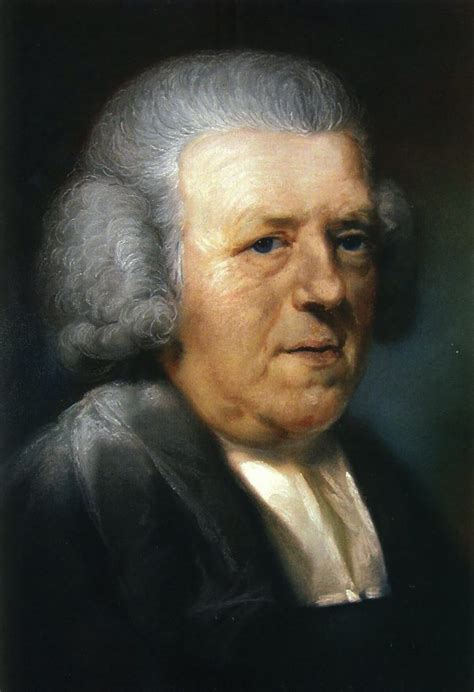John Newton Composer

John Newton, a renowned English Anglican clergyman and hymn writer, is best known for composing the iconic hymn "Amazing Grace." Born on July 24, 1725, in Wapping, London, Newton's life was a testament to the power of redemption and the human capacity for change. Despite being raised in a Christian household, Newton's early life was marked by rebellion and a disdain for the Christian faith. He went on to become a sailor and eventually a slave trader, but a dramatic conversion experience in 1748 transformed his life and set him on the path to becoming one of the most influential hymn writers in history.
Early Life and Spiritual Journey

Newton’s spiritual journey was a long and arduous one, filled with twists and turns that ultimately led him to become a powerful voice for the Christian faith. His early years were marked by a troubled relationship with his father, a shipmaster who was often absent from home. This lack of stability and guidance contributed to Newton’s rebellious nature, and he was eventually forced to drop out of school due to his poor behavior. At the age of 11, Newton began his career at sea, working on a ship owned by his father. However, his time at sea was cut short when he was press-ganged into the Royal Navy, where he served for several years before being discharged and returning to the slave trade.
Conversion and Ministry
Newton’s conversion experience in 1748 was a pivotal moment in his life, marking a turning point from a life of rebellion and sin to one of devotion and service to God. The event was sparked by a violent storm at sea, which threatened to sink the ship and prompted Newton to cry out to God for mercy. This experience had a profound impact on Newton, leading him to renounce his former ways and seek a new path in life. He eventually became a clergyman in the Church of England and went on to serve as the curate of Olney, Buckinghamshire, where he met his future collaborator, William Cowper. Together, they produced the famous Olny Hymns collection, which included some of Newton’s most beloved compositions, such as “Amazing Grace” and “Glorious Things of Thee Are Spoken.”
| Notable Hymns | Year Composed |
|---|---|
| Amazing Grace | 1779 |
| Glorious Things of Thee Are Spoken | 1779 |
| How Sweet the Name of Jesus Sounds | 1779 |
| Let Us Love and Sing and Wonder | 1779 |

Key Points
- John Newton was a renowned English Anglican clergyman and hymn writer, best known for composing the iconic hymn "Amazing Grace."
- Newton's life was marked by a dramatic conversion experience in 1748, which transformed his life and set him on the path to becoming a powerful voice for the Christian faith.
- Newton's hymns are characterized by their simple, yet powerful language, which has made them accessible to people from all walks of life.
- Newton collaborated with William Cowper to produce the famous Olny Hymns collection, which included some of his most beloved compositions.
- Newton's legacy extends far beyond his own time and place, with his hymns continuing to inspire and uplift people around the world to this day.
Literary Style and Theological Themes

Newton’s literary style is characterized by its simplicity, clarity, and emotional depth. His use of metaphor and imagery adds complexity and richness to his compositions, making them a joy to sing and a source of inspiration for countless generations of Christians. Theologically, Newton’s hymns are rooted in the Calvinist tradition, emphasizing the doctrines of original sin, justification by faith, and the sovereignty of God. However, his compositions also reflect a deep sense of personal experience and emotional authenticity, which has made them accessible to people from a wide range of theological backgrounds.
Legacy and Impact
Newton’s legacy extends far beyond his own time and place, with his hymns continuing to inspire and uplift people around the world to this day. His compositions have been translated into countless languages and have been sung by millions of people in every corner of the globe. Newton’s impact on the development of Christian hymnody is incalculable, and his influence can be seen in the work of countless other hymn writers and composers who have followed in his footsteps. Despite the passing of centuries, Newton’s hymns remain a powerful testament to the enduring power of faith and the human spirit.
What is the most famous hymn written by John Newton?
+The most famous hymn written by John Newton is undoubtedly "Amazing Grace," which has become one of the most beloved and recognizable hymns in the world.
What was the inspiration behind John Newton's conversion experience?
+John Newton's conversion experience was inspired by a violent storm at sea, which threatened to sink the ship and prompted him to cry out to God for mercy. This experience had a profound impact on Newton, leading him to renounce his former ways and seek a new path in life.
What is the significance of John Newton's collaboration with William Cowper?
+John Newton's collaboration with William Cowper resulted in the production of the famous Olny Hymns collection, which included some of Newton's most beloved compositions. This collaboration marked an important milestone in the development of Christian hymnody and had a lasting impact on the world of Christian music.
John Newton’s life and legacy serve as a powerful reminder of the transformative power of faith and the human capacity for change. Through his hymns, Newton continues to inspire and uplift people around the world, offering a message of hope and redemption that transcends time and culture. As we reflect on Newton’s life and legacy, we are reminded of the enduring power of faith and the importance of living a life of purpose and meaning.